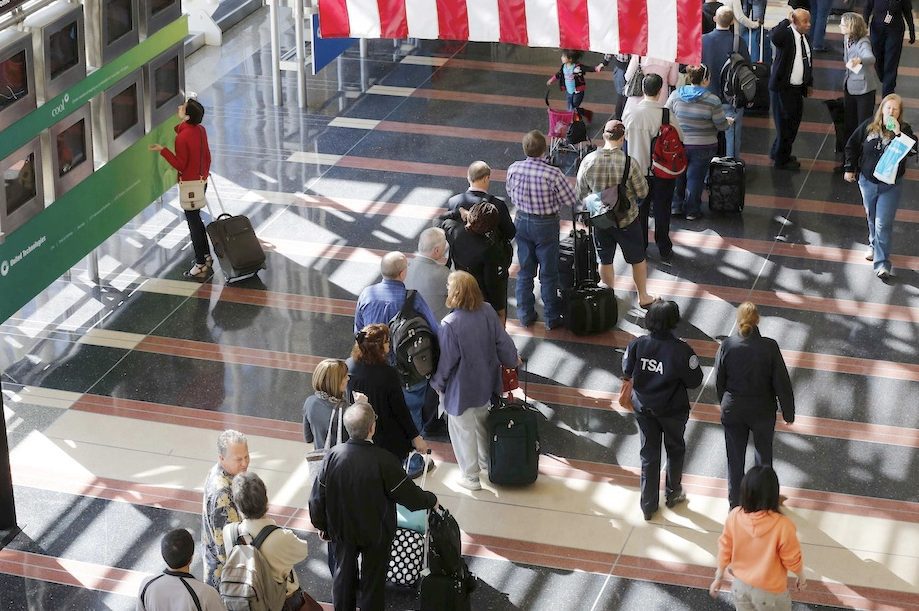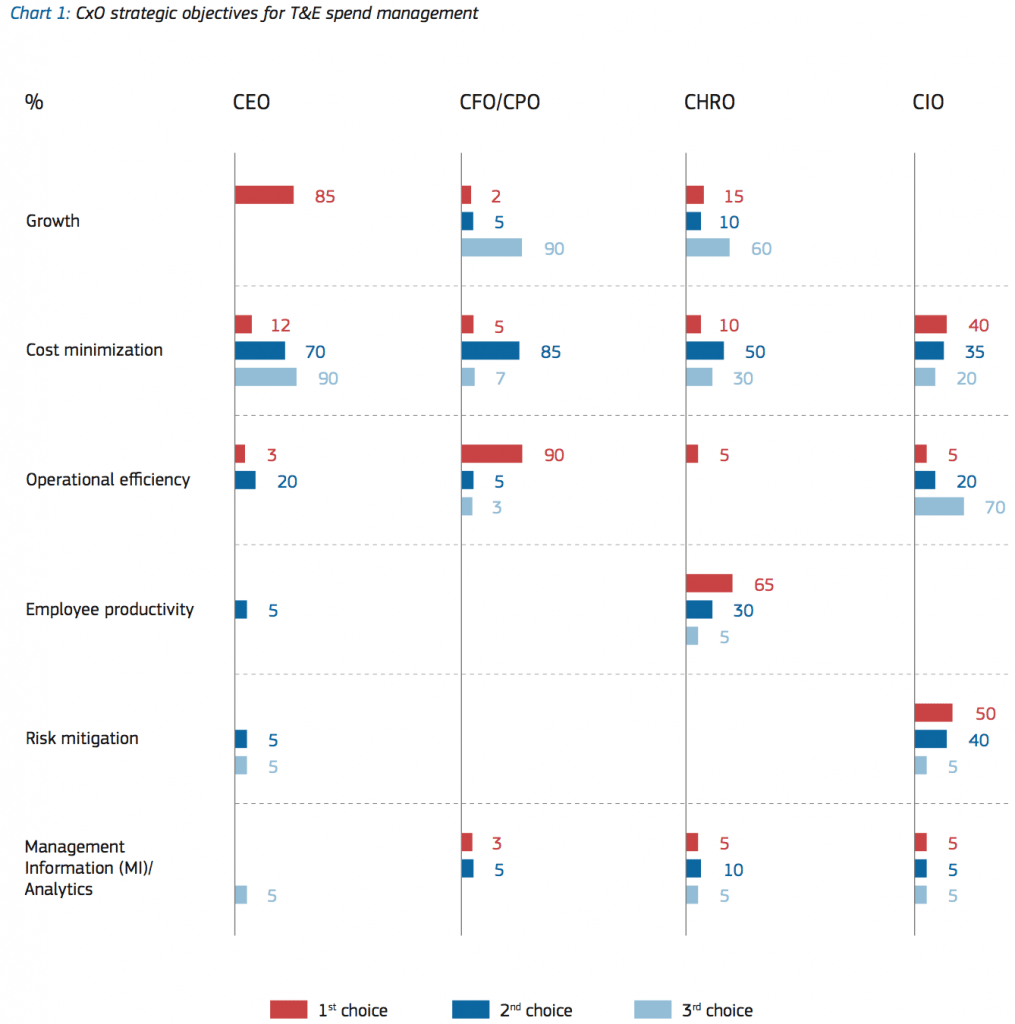Skift Take
Different corporate departments have varied goals for business travel. What they can all agree on is that enabling mobile booking has gone from a luxury to a necessity.
It may come as no surprise, but the priorities surrounding business travel often differ inside organizations. Chief executives might want growth at all costs, while others desire to restrain costs or increase the efficiency of an organization. Travelers themselves, of course, just want to have a productive trip.
A new report, “Managing Every Mile,” from Amadeus and the London School of Economics, shines light on this phenomenon. They polled C-suite executives on their philosophy on business travel expenses, and their top priorities when it comes to producing positive outcomes from road warriors.
“The research finds that through proactive management of T&E (Travel & Entertainment), using best-practice processes and automated IT systems, dramatic impact can be achieved: The cost of processing a transaction can reduce by over half; over 10 percent savings can be made through the use of an online booking tool; employee satisfaction can improve; 20 percent higher fraud identification than paper-based expense reports can occur, among others,” states the report.
This all sounds great, but there are serious roadblocks to big companies making smarter decisions around travel. The contrast in approaches and goals between different departments can make it hard for a comprehensive strategy to emerge. Take a look at this chart from the report showing the different objectives of each department polled:
Logically, this all makes sense: CEOs want growth (although they likewise need to manage costs), CIOs want efficiency, and CFOs want reduced costs. Diving deeper, this lack of alignment can have costly drawbacks for corporations. Instead of focusing on constraining costs while growing the company, costs often increase without a plan for handling increased business travel.
There was some agreement in the survey, however, on priorities going forward across different departments.
Mobile booking is a priority, with 94 percent of executives polled saying it was their highest IT-enabled priority. Mobile bookings only accounted for 11 percent of total bookings, while 85 percent of employees used mobile devices to manage their itineraries. On the expense side, 70 percent of those polled said that the ability to extract low-level expense details was their top IT-enabled priority.
Check out the full report below.
The Daily Newsletter
Our daily coverage of the global travel industry. Written by editors and analysts from across Skift’s brands.
Have a confidential tip for Skift? Get in touch
Tags: amadeus, business travel
Photo credit: Passengers wait to enter the security checkpoint before boarding their aircraft at Reagan National Airport in Washington, D.C. April 25, 2013. Corporate management is divided on what objectives are most important surrounding business travel. Larry Downing / Reuters

